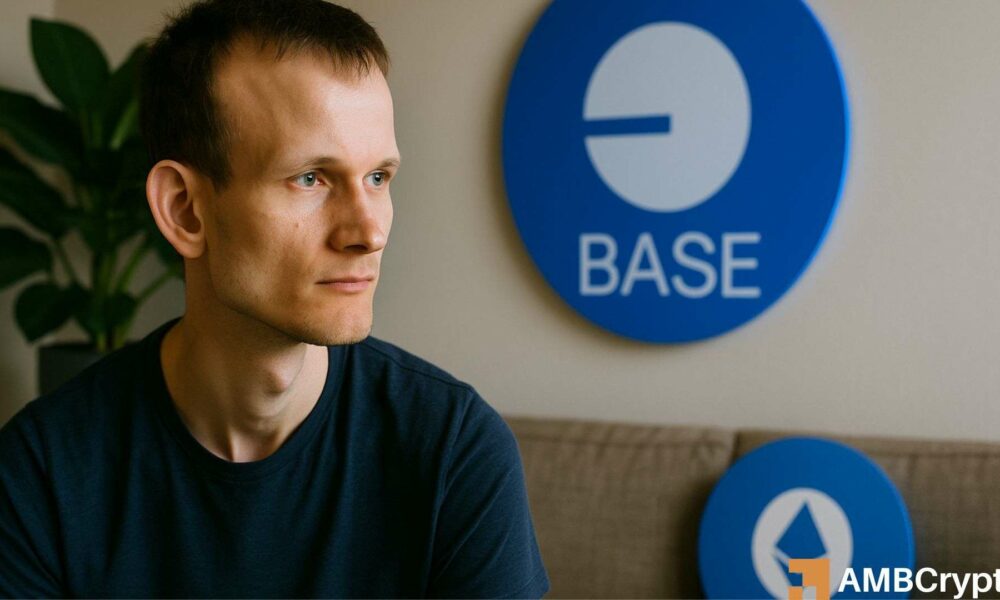Key Takeaways
What’s the FUD against Base?
Some claimed that Base is an ‘unregistered securities exchange’ that can rug users because its sequencer is centralized and controlled by Coinbase.
Why did Buterin defend Base?
As part of the Ethereum L2 scaling approach, Buterin defended Base, calling its ‘stage 1’ rating a ‘non-custodian’ that can’t steal users’ funds.
Vitalik Buterin, co-founder of Ethereum [ETH], has defended Base, a Layer 2 (L2), against ‘centralization’ criticism.
Some users across Crypto Twitter claimed that Base is an ‘unlicensed securities exchange’ since Coinbase is the primary sequencer operator (deciding which transaction orders are prioritized).
So while its settlement on Ethereum may be decentralized, Base’s ‘centralized’ features at the ‘sequencer layer’ should be ‘regulated’, according to Max Resnick, lead economist at Anza.
But Buterin shut down the claims, adding that Base is ‘doing things the right way’ and can’t ‘steal users’ funds.’
“Base does not have custody over your funds; they cannot steal funds or stop you from withdrawing funds. The security that L2s provide reflects concrete properties that protect you as a user from being rugged.”
Put differently, Base users can withdraw funds if the L2 shuts down, via assurances through the Ethereum mainnet, noted Buterin.
The debate continues
In essence, Base is rated as a ‘stage 1,’ similar to Optimism [OP] and Arbitrum [ARB], by data tracker L2 Beat, because users can’t lose their assets, added Buterin.
However, some quickly pointed out that the security council of these L2s can still override the on-chain code and keep users’ assets locked.
Buterin acknowledged this, but added that some voting powers stay outside the L2 council, which makes them ‘non-custodian’


Source: X
Base growth
The Base L2 was launched in August 2023, and Coinbase positioned it as the go-to low-cost platform for its on-chain products.
Since early 2024, the total locked value (TVL) has increased 10x from $500m to nearly $5 billion.
In the past three months, the L2 has outpaced the Ethereum mainnet in fees and revenues collected.
It recorded 4% fee surge to $146K with a revenue of $141.7K. Meanwhile, revenue for the L1 dropped 92% to $101K.


Source: Artemis
In fact, Ethereum has lagged behind Solana [SOL] in terms of app revenues. Even so, Buterin said that the revenues could improve with low-risk DeFi apps, calling it the ‘Google Search’ moment for Ethereum.
But, Base growth could also be a risk factor for Ethereum. According to Consensys and Ethereum co-founder Joseph Lubin, Base could be risky if it parts ways with the mainnet.
That said, Jesse Pollak, creator of Base, noted that they are committed and plan to advance the L2 to ‘stage 2’ as part of broader decentralization plans.
“Today, we’re actively working towards stage 2 and investing in further decentralizing block building.”







